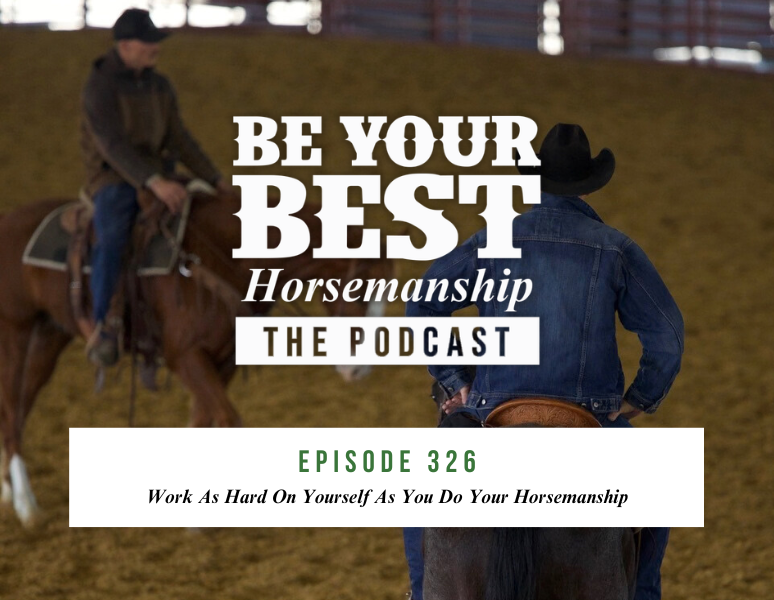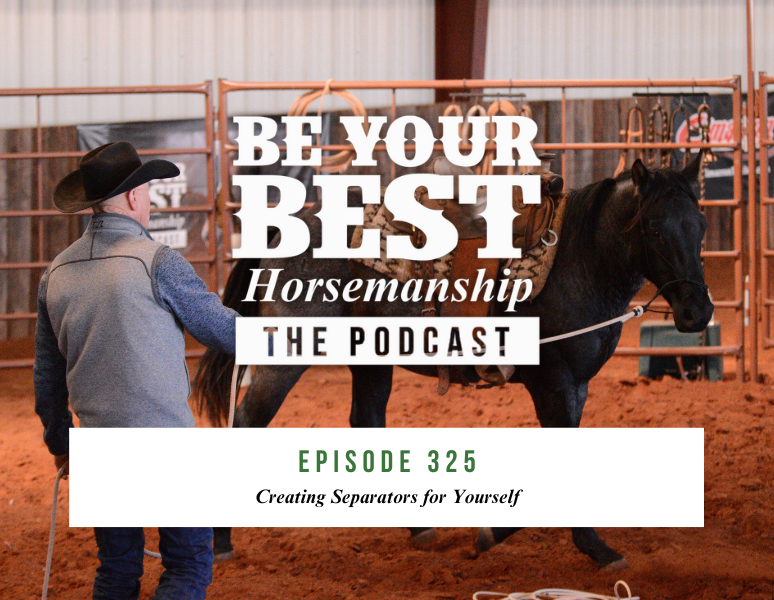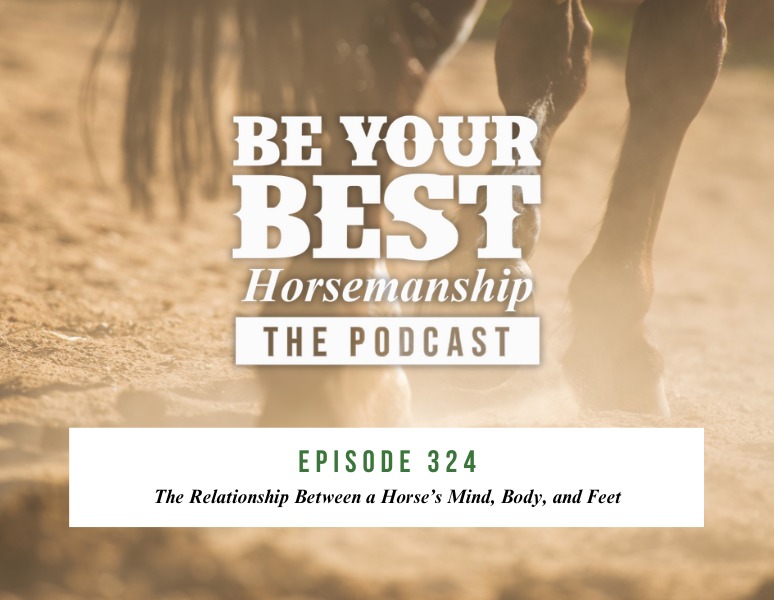Ep 259: One-on-One with Charly Crawford
In this week’s podcast, I had the pleasure of co-hosting with Charly Crawford, a ten-time NFR qualifier, elite team roping clinician, host of the Charly Crawford Podcast, and founder of the Liberty and Loyalty Foundation. Join us as we dive into Charly’s insights about progressing horses, finding success, and finding yourself in the process.
Building Trust with Your Horses
One of the things that really stood out to me during our conversation is how Charly approaches training and developing his horses. He shared how, early on, his strength was riding calm and quiet, especially with horses that were already blown up. This ability to ride in a way that instills confidence in a horse is what made him so successful with horses that others may have given up on. He said, “The calmer I stayed, the more that horse sort of trusted me over time.” And that’s really what it comes down to—building trust. “I had some horses that I really felt like would go to battle for me. When a horse believes in you because of how you’ve handled them, they’ll give you everything they’ve got. Not every horse will get there, but for those that do, it’s something special.”
Committing to the Process of Building a Horse’s Foundation
We also discussed how crucial it is to be mounted on the right horse when you’re competing, especially at a high level. Charly mentioned how 2010 and 2020 were the years he felt he was strongest when it came to being well-mounted. Having the right horse for the right setup made all the difference. Whether it was a long score at Salinas or a shorter score at Ogden, Charly strategically planned where each horse would perform best. But it’s not just about having the right horse; it’s about having the right foundation.
As Charly put it, “you can’t expect a horse to just be confident one day if you haven’t put in the work to build that confidence from the ground up. Whether it’s teaching a young horse to handle new experiences or ensuring your older horse maintains its foundation, it’s all about consistency.”
One of the things that stood out to me during our conversation was how Charly works to ensure that every horse he trains has a solid foundation. He talked about how important it is to start young horses off right, desensitizing them and giving them the confidence they need to stay sound—both mentally and physically. That early foundation pays off later when you’re asking them to perform at a high level. As Charly said, “The foundation starts early. It’s critical to keeping them sound and prepared for the future.”
Practice Like You Perform
Another key part of our conversation was about the importance of practice. Charly and I both agree that how you practice directly affects how you perform in competition. If you’re just going through the motions at home, you can’t expect to suddenly perform at your best when the pressure’s on at the jackpot or the rodeo. As Charly said, “If you’re roping like that at the jackpot and not in the practice pen, you’re only practicing for money.”
Slow, Smooth Repetitions Build Skills
One of the biggest lessons Charly has learned since retiring from rodeoing is understanding the learning process. Since stepping back from competition, he’s been involved in activities that are new to him, like shooting drills with military professionals. That experience helped him appreciate the value of patience and repetition when learning something new—whether it's for himself or a horse. He talked about how the military guys he trains with focus on slow, smooth repetition to build skill. That same concept applies to training horses. It’s all about breaking things down into manageable steps and letting the horse figure it out before adding speed or pressure.
Giving Yourself (and Your Horses) The Grace to Make Mistakes
Charly also emphasized the importance of grace in training—whether that’s for a student or a horse. “I can tell when a horse doesn’t understand, and that’s my job—to help them understand,” he said. This patience and understanding are key in horsemanship because horses don’t have the ability to verbally tell us when they don’t understand. Their actions speak for them, and it’s up to us as trainers to listen and adjust our approach.
Letting It Happen vs. Making It Happen
As Charly and I discussed, every year brings new lessons, and the key is taking those experiences, whether they’re good or bad, and learning from them. That’s where growth happens.
Charly opened up about his own battles growing up, particularly with dealing with failure and battling some deep personal struggles. He didn’t shy away from sharing the reality that he grew up with insecurities that, at times, led to suicidal thoughts. He talked about how pain can drive a person to believe there’s only one solution, but in those dark moments, Charly felt God’s presence and found strength to keep going. And looking at where he is now—a loving husband, father, and successful roper—he’s grateful for the path that’s unfolded. His message to young people battling similar thoughts is powerful: “Look at where I’m at now—it’s a good thing I didn’t give up.”
Through those experiences, Charly learned how to work hard and surround himself with winners. But more importantly, he learned the difference between “letting it happen” and “making it happen.” He admitted that, for years, he was always trying to make things happen, which led to a sense that nothing was ever good enough. His horses weren’t good enough. He didn’t rope well enough. He didn’t win enough. There was always this void he was trying to fill, but it was never enough.
That relentless drive fueled his success, but it also left him exhausted. However, in his final year of competing in 2020, Charly had a breakthrough. He roped better than he ever had in his life. The difference? He finally learned how to trust the process and let things happen naturally, rather than forcing them. “If you work hard and put yourself in the right situation, it’s going to happen,” Charly said. “I wish I’d trusted that process a lot more.”
Trusting the process is something we talked about a lot. Charly and I both agreed that, when you put in the work and surround yourself with the right people, you don’t need to stress about every little detail. It’s going to come together. That shift in mindset, moving from forcing things to trusting the process, has transformed Charly’s life in a big way.
The Power of Appreciating the Process
What I really admire about Charly is how he treats each competition as a learning experience. He doesn’t get caught up in the idea of winning or losing. Instead, he views each event as an opportunity to get better. “If I do enough of those in a row, that’s money,” he said. It’s all about the long game for him now, focusing on seasoning his horses and honing his skills for the futurity finals at the end of the year. That’s a lesson we can all apply in life: focus on the journey, not just the destination.
Charly’s perspective on the balance between competition and enjoying life was another big takeaway. He talked about how, when he was younger, it was all about winning, and it took a toll on him. Now, he’s more focused on enjoying the process and surrounding himself with people who lift him up. He’s not interested in getting in the rig with someone who’s going to throw a fit after a loss or take out their frustration on their horse. He’s all about enjoying the ride and having fun, because at the end of the day, that’s what it’s all about.
Charly also touched on how his experiences outside of roping, like training with military guys, have given him a fresh perspective on learning. He’s picked up on the importance of mastering the fundamentals slowly and methodically before adding speed or pressure. That concept of “slow is smooth, and smooth is fast” applies not just to shooting drills, but also to horsemanship and life. It’s about laying a solid foundation and building from there.
For Charly, the process is everything. Whether it’s training horses, roping, or life in general, he’s learned that progress comes from patience, trust, and hard work. “I wish I’d known how to do that when I was younger,” he said. But now, with a wealth of experience behind him, he’s able to approach life and competition with a sense of peace and confidence that only comes from years of learning, growing, and trusting the process.




